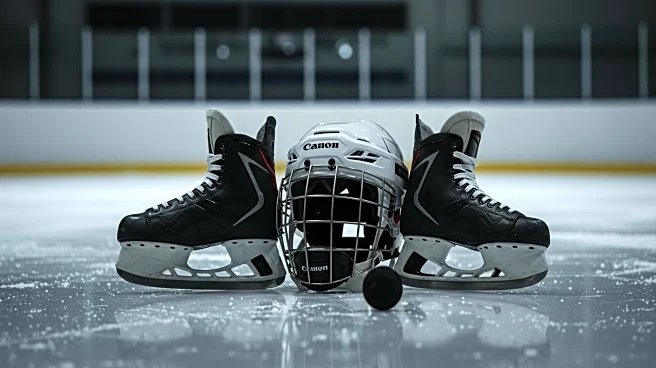What's Happening?
Roope Hintz, a center for the Dallas Stars, has fully recovered from a broken foot sustained during the playoffs, according to NHL.com. The injury did not require surgery, and Hintz is expected to participate in the upcoming training camp. Despite the injury, Hintz returned for the final two games of the series against Edmonton, although he was not at his best. Last season, Hintz was fourth in scoring for the Stars, with 28 goals and 39 assists over 76 games, and added 12 points in 17 postseason appearances. This marked the first time in four years that he did not reach the 30-goal mark, a milestone he might have achieved if he had been fully healthy during the regular season.
Why It's Important?
Hintz's recovery is significant for the Dallas Stars as they prepare for the new season. His ability to participate in training camp is crucial for team dynamics and strategy development. Hintz's performance is vital for the Stars, given his scoring capabilities and contributions during both regular and postseason games. His return to full health could enhance the team's offensive strength and improve their chances in the upcoming season. The Stars will likely benefit from his experience and skill, potentially impacting their overall performance and standing in the league.
What's Next?
With Hintz ready for training camp, the Dallas Stars will focus on integrating him back into the team’s lineup and strategy. The team will aim to capitalize on his scoring abilities and ensure he is fully prepared for the regular season. Hintz's performance during training camp will be closely monitored to assess his readiness and impact on the team's dynamics. The Stars will also strategize to prevent further injuries and maintain player health throughout the season.
Beyond the Headlines
Hintz's recovery highlights the importance of player health management in professional sports. The decision to avoid surgery and allow natural recovery may reflect a broader trend in sports medicine prioritizing long-term player health over immediate performance. This approach could influence how teams manage injuries and player recovery in the future, potentially leading to changes in training and medical protocols.








